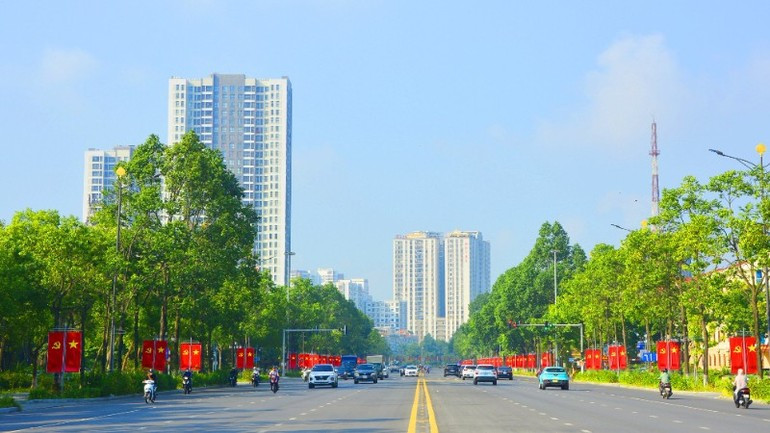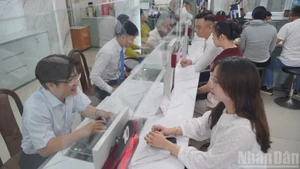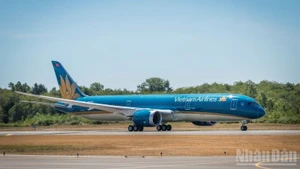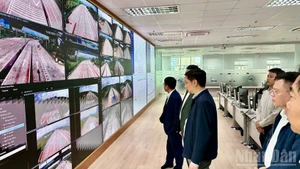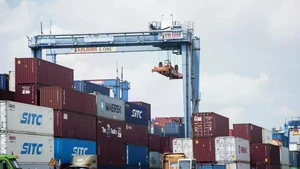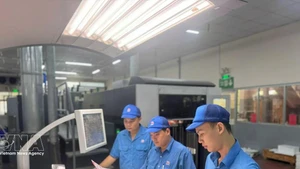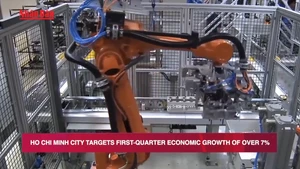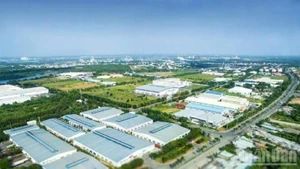With a proactive approach and an expanded development space connecting the delta and mountainous areas, Bac Ninh has been striving to build a streamlined, effective, and efficient political system, working towards becoming a modern, prosperous and civilised urban centre imbued with the Kinh Bac cultural identity, affirming its role as a driving force for growth in the region.
Urbanisation aligned with local strengths
As of August 28, all 103 Party organisations under the Bac Ninh Provincial Party Committee had successfully held their congresses. Following the provincial orientation to become a centrally governed city and a key industrial locality by 2030, communes and wards have set the goal to become modern and civilised urban areas in their congress documents and action programmes.
Kinh Bac Ward stands as a model in building a strong political system in association with socio-economic development. The ward was established through the merger of six former wards of Bac Ninh City. It is one of the leading centres for trade and services in the province, with total budget revenue exceeding 3.6 trillion VND (136.7 million USD) and the highest per capita income in the province, reaching 85 million VND (3,200 USD).
Bac Ninh Province has entrusted Kinh Bac Ward with forming two new growth-driving zones for both the ward and the province: the north-western area (oriented towards developing a high-quality urban, trade, and service area) and the Ly Thai To Street area (oriented towards becoming a centre of innovation, creativity, and international exchange, housing representative offices of foreign-invested enterprises, major domestic and foreign corporations and brands).
Ta Dang Doan, Secretary of the Kinh Bac Ward Party Committee, shared: “For the 2025-2030 tenure, the ward’s Party Committee will focus on developing high-quality trade and services, promoting digital transformation, and developing Kinh Bac Ward comprehensively. The first Party Congress of the ward has identified 17 goals, implemented five key tasks and three breakthrough areas, along with synchronous solutions, to realise the aspiration of comprehensive development, contributing to Bac Ninh’s goal of becoming a centrally governed city by 2030.”
In Gia Binh Commune, along with implementing land clearance for Gia Binh International Airport, the commune’s Party Committee has set a target to upgrade Gia Binh into a ward by 2027. Nguyen Cong Ky, Secretary of the Gia Binh Commune Party Committee, said: “To realise the target of becoming a ward by 2027, the commune’s Party Committee has set ambitious targets, such as maintaining an average annual growth rate in total production value of 13.5%; an average increase in state budget revenue of 15% or more; a per capita income of about 110 million VND per year; and by 2030, industry, construction and services will account for 91.4% of the total production value.”
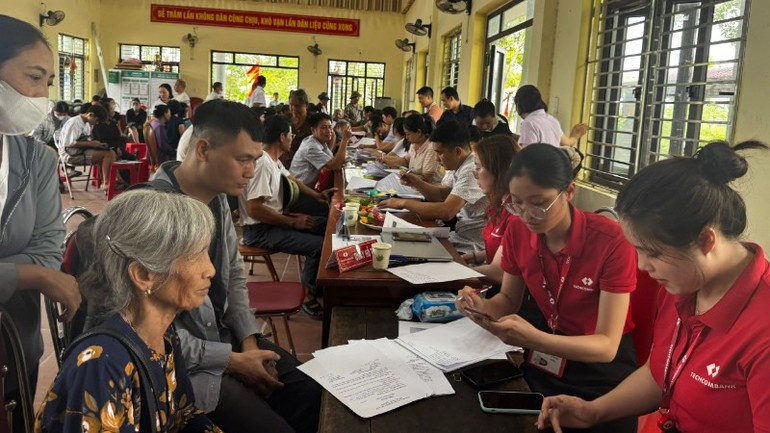
Phan Thi Nhung, from Dong Lam Village, Gia Binh Commune, said: “We are very happy that an international airport project is being built in our homeland. Supporting the project, local people have quickly handed over land for site clearance. We hope the project will soon be put into operation to give a new look to our hometown and improve people’s livelihoods.”
Promoting local strengths, Tay Yen Tu, a highland commune, has also set the goal of becoming a ward in the near future, in line with the orientation towards developing a green, comprehensive and sustainable urban area. Despite many difficulties, the locality is determined to achieve an average annual production growth rate of over 12% during 2026-2030, increase per capita income to over 64 million VND per year by 2030, and basically eliminate poor households by the end of 2027.
Affirming the role as a growth pole
After the merger, Bac Ninh ranks fifth nationwide in economic output, 14th in population, and 30th in land area. Overcoming initial difficulties and challenges, and capitalising on its post-merger advantages through solidarity, proactiveness and creativity in governance, Bac Ninh has achieved numerous important and outstanding results, affirming itself as a dynamic locality and the industrial hub of northern Viet Nam.
In the first eight months of 2025, Bac Ninh remained the leader in attracting foreign investment, with over 4.5 billion USD. The province’s industrial production index (IIP) has consistently ranked among the country’s highest, while its export turnover topped the nation in July and August. Total state budget revenue in the first eight months exceeded 50.3 trillion VND, equivalent to 88.5% of the annual target. Based on the general orientation and local realities, the province has set a strong growth target of 11.5%, affirming its determination to make breakthroughs and its role as a growth pole of the Red River Delta.
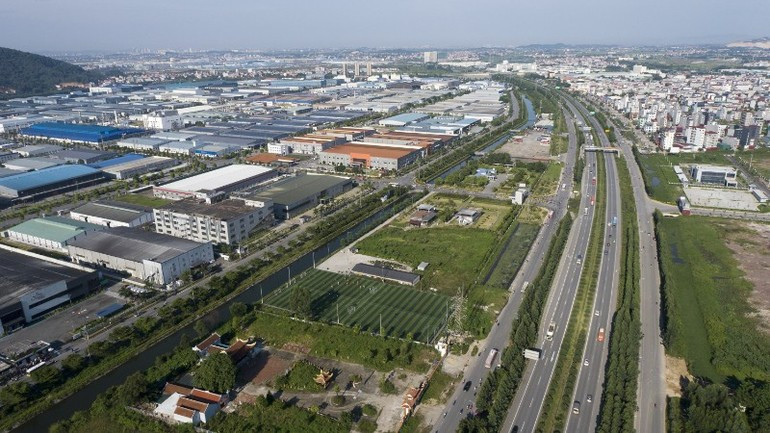
At the recent Bac Ninh Investment Promotion Conference, Deputy Prime Minister Nguyen Hoa Binh remarked: “After the merger, Bac Ninh ranks fifth nationwide in economic output, but this position will not stop there - it will continue to improve as the province possesses many advantages and great potential.”
The Deputy Prime Minister expressed confidence that Bac Ninh will become a centre for high-tech industry, innovation, and smart urban development in the country and the region, aiming to become a centrally governed city in the near future.
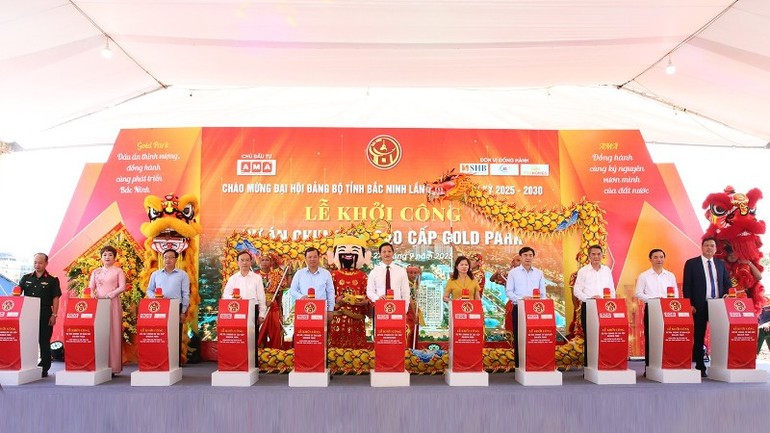
Chairman of the Bac Ninh Provincial People’s Committee Vuong Quoc Tuan stated: “Developing Bac Ninh rapidly and sustainably, becoming a centrally governed city by 2030, is not only a political aspiration but also a development mission of timely opportunity, requiring a comprehensive transformation in mindset, institutions, and action.”
Bac Ninh aims to become a city that serves as a national hub for high-tech industrial production; a centre of culture, education, and entertainment rich in Kinh Bac cultural identity; a city with a modern, synchronous transport infrastructure system; and a locality providing outstanding welfare and social security for its people – a pioneer in implementing and promoting the four key resolutions of the Politburo to create strong breakthroughs in development.
In this process, Bac Ninh targets an urbanisation rate of 65%, with urban transport land accounting for 25% of total urban construction land. The province will focus on completing and putting into operation key national projects, including Gia Binh International Airport, Ha Noi Ring Roads 4 and 5, the routes linking Gia Binh International Airport with Ha Noi and the provincial administrative-political centre, the Lao Cai-Ha Noi-Hai Phong railway, the Ha Noi-Quang Ninh high-speed railway, and the urban railway network forming the framework of urban transport infrastructure.
At the same time, Bac Ninh will invest in multimodal transport infrastructure, expanding inter-provincial, inter-regional, and international connectivity; develop infrastructure systems for aviation, logistics, science and technology, industrial, energy, urban, healthcare, education, and data to effectively support sustainable socio-economic management and development, digital and green transformation, and climate change response.
